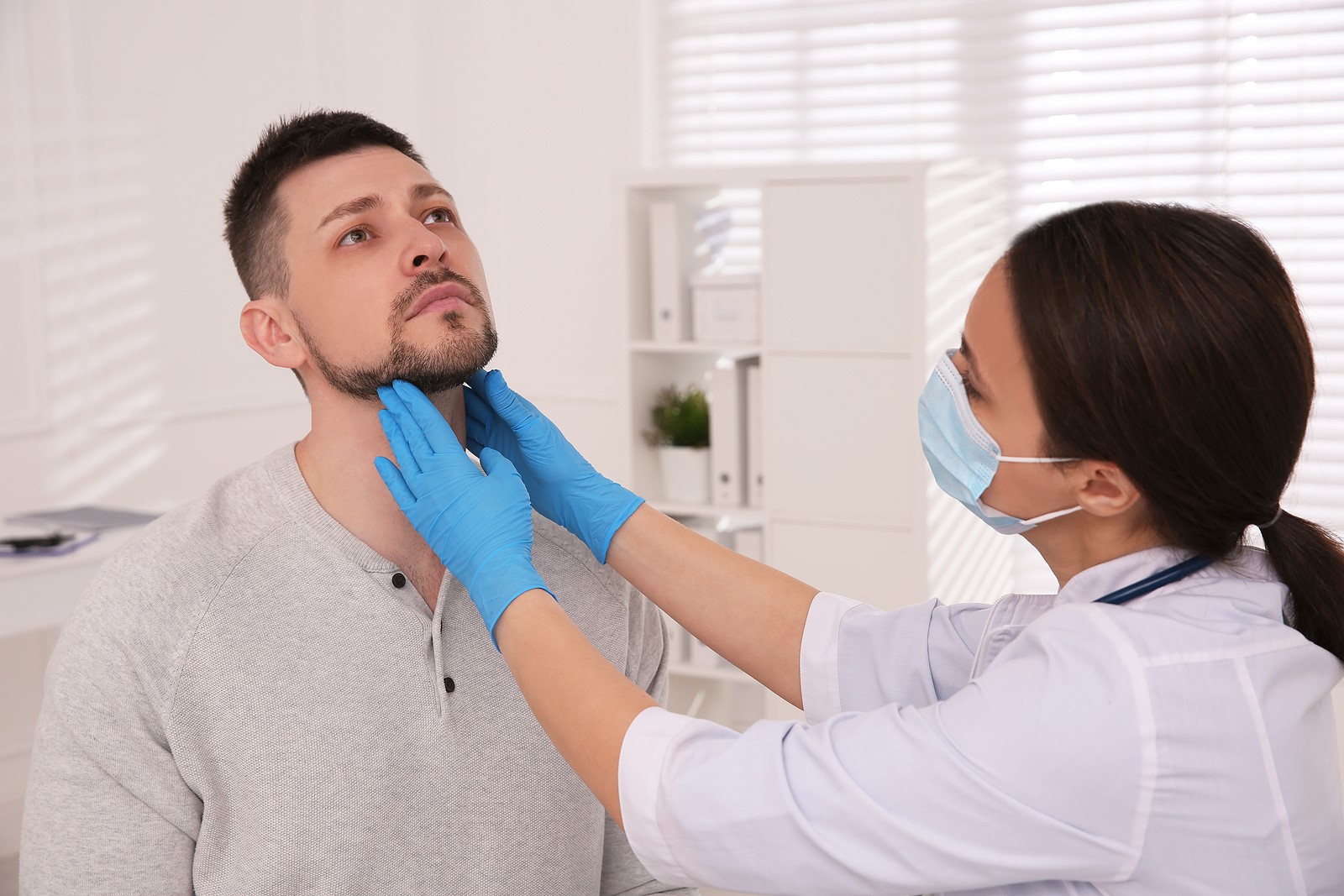
The thyroid gland is located in the front lower part of the neck. The thyroid hormones produced by this butterfly-shaped organ enter the bloodstream and affect nearly every part of the body, including the heart, the brain, the muscles, and the skin. The thyroid regulates the body’s metabolism and impacts critical body functions like heart rate and energy level.
According to the American Thyroid Association, an estimated 20 million Americans have some form of thyroid disease. It’s also alarming that up to 60 percent of those with thyroid disease are unaware of their condition. (American Thyroid Association) January is Thyroid Awareness Month, and here is what you should know about this essential endocrine organ.
Hypothyroidism vs. Hyperthyroidism
When the thyroid is underactive, it doesn’t produce adequate hormones, which could lead to hypothyroidism. On the other hand, if the thyroid is overactive and produces excessive hormones, it leads to hyperthyroidism. While both hypothyroidism and hyperthyroidism are common diseases, they have different causes, symptoms, and treatments.
Hypothyroidism
The symptoms of hypothyroidism may not be noticeable in the early stages, and they may vary depending on the severity of the hormone deficiency. Hypothyroid may also affect infants, children, and teens.
Symptoms
Some symptoms may include fatigue, dry skin, weight gain, constipation, changes in the menstrual cycle, greater sensitivity to cold, muscle weakness, pain, stiffness, or swelling in the joints, etc.
In children, the symptoms of hypothyroidism may include yellowing of the skin and whites of the eyes, hoarse crying, protruding tongue, difficulty breathing, umbilical hernia, etc. In children and teens, in addition to the symptoms that adults show, they may experience delayed puberty, delayed development of permanent teeth, poor physical and mental growth, etc. (Mayo Clinic, 2020)
Causes
One of the most common causes of hypothyroidism is autoimmune diseases like Hashimoto’s thyroiditis. In an autoimmune disorder, the antibodies produced by the body attack and destroy the thyroid gland. Some other causes of hypothyroidism may include using certain medications, radiation treatment, thyroid surgery involving the removal of the thyroid gland, inadequate iodine in the diet, etc.
Treatment
While hypothyroidism cannot be cured, taking the appropriate treatment can help to manage it. The primary treatment is taking synthetic thyroid hormone in pill form every day. Blood tests must be done regularly to monitor the thyroid hormone levels, and the doctor may adjust the dosage of medication as needed. Medicines must not be skipped as the symptoms of hypothyroidism could come back. (Miller, 2020)
Hyperthyroidism
Hyperthyroidism can accelerate the body’s metabolism, leading to weight loss and an irregular or rapid heartbeat.
Symptoms
Since the symptoms of hyperthyroidism may mimic other health problems, it could be challenging to diagnose. Some symptoms may include fatigue, unintentional weight loss even if food intake remains the same, palpitations, irregular or rapid heartbeat, sweating, tremors, anxiety or nervousness, hair loss, etc.
Causes
Some of the causes of hyperthyroidism may include,
- Graves’ disease: Graves’ disease is an autoimmune disorder in which damage is caused to the thyroid due to the overproduction of hormones.
- Thyroiditis: This is an inflammation of the thyroid gland, and it includes a group of disorders that may have caused the thyroid to become inflamed.
- Overmedication: Taking excessive medication for hypothyroidism could lead to hyperthyroidism.
- Nodules: When the thyroid gland is enlarged, it is called goiter. If there is an abnormal growth of thyroid tissues, multiple lumps or nodules may be seen.
Treatment
Hyperthyroidism is highly treatable. However, the doctor will work to diagnose the appropriate treatment based on the cause, severity, and the presence of any other complications.
If the hyperthyroidism is due to Graves’ disease, the doctor may prescribe radioactive iodine therapy or anti-thyroid drugs.
It may be possible that after the treatment, hyperthyroidism may return. While surgical removal of the thyroid gland may seem like a permanent solution, it involves certain risks. Surgical removal may also lead to hypothyroidism, and this means thyroid replacement hormones will be necessary lifelong. (Dellwo, 2021)
Diet for Better Thyroid Health
For better thyroid health, foods that must be avoided or limited include unhealthy fats, sweets, caffeine, alcohol, inflammatory foods, table salt, foods that could spike sugar levels, etc.
Hypothyroidism and hyperthyroidism have different symptoms and complications. However, managing them with proper medical procedures and treatment is possible. If you’re showing any signs, it’s best to speak to your healthcare provider so that you can get the appropriate treatment options early.
Works Cited
American Thyroid Association. “General Information/Press Room.” American Thyroid Association,
www.thyroid.org/media-main/press-room/.
Mayo Clinic. “Hypothyroidism (Underactive Thyroid).” Mayo Clinic, Mayo Foundation for Medical Education and Research, 19 Nov. 2020,
www.mayoclinic.org/diseases-conditions/hypothyroidism/symptoms-causes/syc-20350284.
Miller, Kelli. “Hypothyroidism (Underactive Thyroid): Symptoms, Causes, Tests, Treatments.” WebMD, WebMD, 2020,
www.webmd.com/women/hypothyroidism-underactive-thyroid-symptoms-causes-treatments.
Dellwo, Adrienne. “Hypothyroidism vs. Hyperthyroidism: What’s the Difference?” Verywell Health, Verywell Health, 22 June 2021, www.verywellhealth.com/hypothyroidism-hyperthyroidism-5180646
